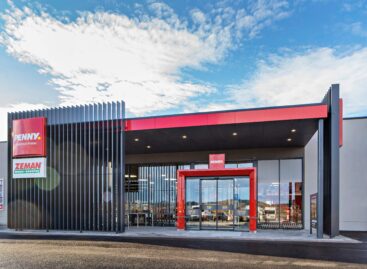This is how customer habits have changed according to SPAR, Tesco, Penny, Auchan and CBA
We are not giving up anything, but people have started buying down and because of the high food inflation of 35.2 percent. More and more people are complaining that the daily purchases that cost 4-5 thousand forints a few months ago are now 8-10 thousand forints, and the weekend purchases of 15-20 thousand forints have already exceeded 30-35 thousand forints.

There is no product that consumers completely give up
War inflation appeared, which brought with it the phenomenon of buying down. This means that customers primarily prefer the cheaper, discount and official pricing products
– summed up Márk Maczelka, SPAR’s communications manager, to Index.
He highlighted:
In general, it can be said that shopping baskets are on the decline, customers are thinking a lot about what and how much they buy, and especially for how much. In this context, while the turnover share of private label products hovered around 25 percent on an annual average, it has already exceeded 30 percent in recent months.
Attila Fodor, CBA’s communications director, noticed that the first-price, own-brand, discount products came into focus, and the share of sales shifted in this direction.
“At the same time, we don’t see products that customers would completely give up on”
– he says.
Related news
Unprecedented collaboration: more than 6,000 homeless and shelter animals receive support
🎧 Hallgasd a cikket: Lejátszás Szünet Folytatás Leállítás Nyelv: Auto…
Read more >Penny Czechia Seeks Growth With €112m Investment In 2026
🎧 Hallgasd a cikket: Lejátszás Szünet Folytatás Leállítás Nyelv: Auto…
Read more >Hétéves növekedési stratégiát jelentett be az Auchan
🎧 Hallgasd a cikket: Lejátszás Szünet Folytatás Leállítás Nyelv: Auto…
Read more >Related news
Festival buzz at the 60th anniversary EuroShop trade fair
🎧 Hallgasd a cikket: Lejátszás Szünet Folytatás Leállítás Nyelv: Auto…
Read more >A stable compass in the Hungarian FMCG sector for 20 years
🎧 Hallgasd a cikket: Lejátszás Szünet Folytatás Leállítás Nyelv: Auto…
Read more >








